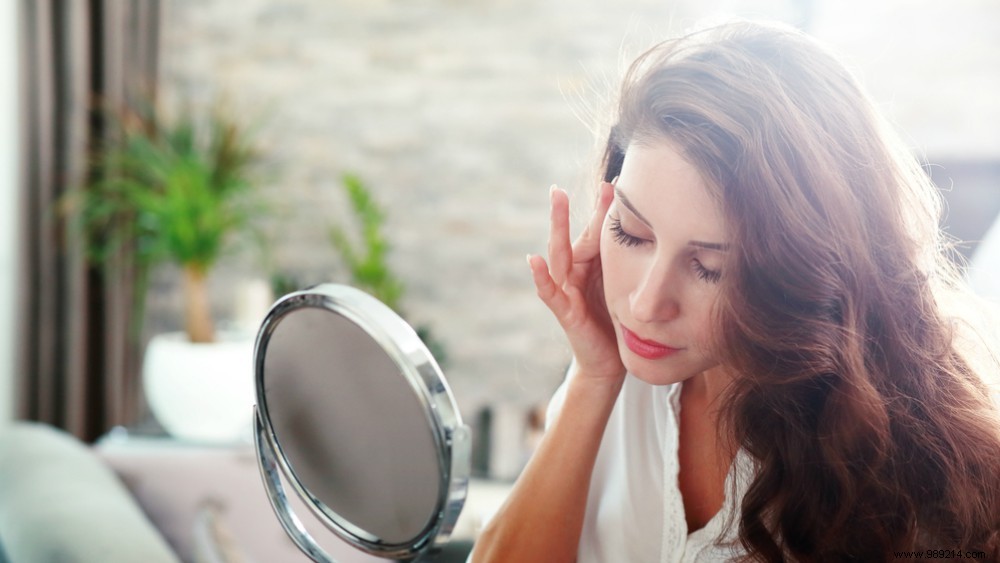
Do you regularly suffer from eczema? Then you definitely want to read this article! Did you know that there are a number of factors that can make your eczema worse? We will tell you everything about it and explain what you can do about it!
Read also :'8 tips against eczema'
Heat isn't necessarily a trigger, but it can have a significant effect on your skin. If it is arid dryness it can lead to dehydration. The sweat that your body excretes in this heat can also become an irritation factor that affects the microflora of your skin and thus fuels eczema. The same goes for very low temperatures:extreme cold makes the humidity lower, which makes your skin drier and you get eczema faster. Therefore, try to avoid areas and treatments that expose your body to heat or cold for a longer period of time (such as a sauna, for example) and plan your workouts at a cool time of the day.
Since heat can be a trigger, it is nice to seek out the coolness. But standing in front of your air conditioner will not do wonders for your skin either. Air conditioning can not only create a dry environment, causing your skin to lose water, but there can also be more dust particles in the air if you do not replace the filter of your air conditioning often enough. Not exactly the best choice for eczema-free skin so…
Do you like long, hot showers? Unfortunately, you'll have to give it up if you want to protect your skin. Imagine if it rains every day and you haven't kept up with the paint on your house. This will loosen the paint and make your house porous. This also happens if your skin comes into contact with water too much, especially if it is daily and hot… Warm water removes the natural oils from the skin, making it better for your skin to take short, lukewarm showers. When you also apply a moisturizing body lotion right after a shower, a shower can even help hydrate and combat eczema. Sounds a lot better, right?
The dust particles floating in the air contain particles of pollen, dust mites and pets, which are allergens and can therefore trigger eczema. This is probably the trickiest eczema trigger because it is literally impossible to avoid dust. You can of course lend a hand:use clean bed linen regularly, clean your carpets (or avoid them anyway) and vacuum regularly. A good air filter can also do wonders.
Exam week, a busy working day, an important presentation:all things that can cause you stress – and therefore also eczema. The effect of stress on your skin is quite significant:stress increases the level of cortisol, a stress hormone, in your body. This causes more inflammation in your body. Another stress hormone, called glucocorticoid, disrupts the balance of your skin barrier, making it weaker. You are also more likely to scratch when you experience stress, which often makes your eczema worse. In short:stress does not make our skin happy. So try to keep your cool by, for example, doing meditation exercises more often to prevent stress.
First of all, it is super important to distinguish between food allergies and eczema. If your rash only comes on when you've eaten certain foods and disappears soon after, it's best to see your doctor for an allergy test. However, it is possible that food to which you are not allergic can aggravate your existing eczema. Do you feel that your eczema gets worse after eating certain foods? Try keeping a food journal to see how your skin reacts to different products. That way you will probably find the culprit quickly!
Chemical sunscreen can make your eczema worse thanks to some ingredients that play a role in protecting against UV rays. Of course, that doesn't mean you shouldn't apply sunscreen if you go outside on a sunny day. Fortunately, there are now a lot of sunscreen options available for those who suffer from eczema and/or sensitive skin. You will then have to experiment a bit to find out what works best for you. As natural as possible is often the best option!